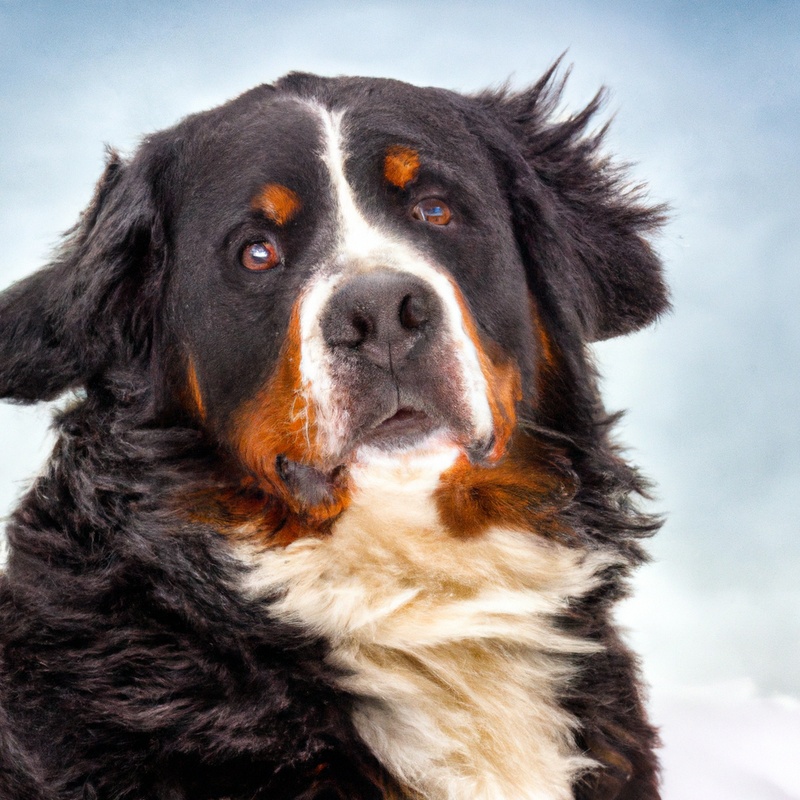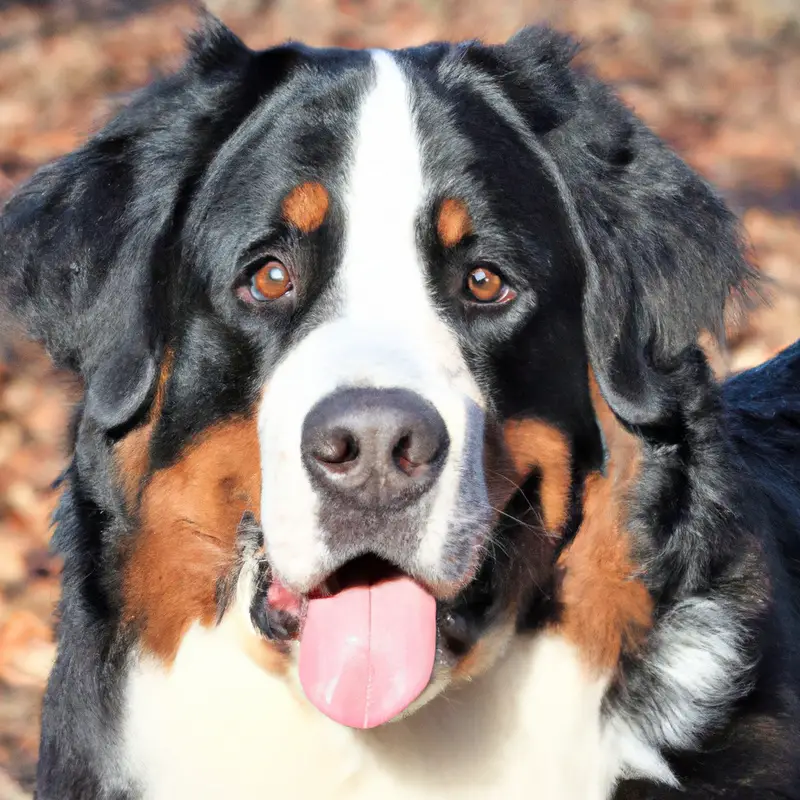Are Bernese Mountain Dogs Known For Being Escape Artists?
Key Takeaways:
- Bernese Mountain Dogs generally have a low tendency to be escape artists.
- Proper training and socialization can help prevent escape behavior in Bernese Mountain Dogs.
- Secure fencing and regular exercise are important to keep Bernese Mountain Dogs from wandering.
- It’s essential to provide mental stimulation to prevent a Bernese Mountain Dog from seeking escape opportunities.
Are Bernese Mountain Dogs known for being escape artists?
Have you ever wondered if these gentle giants possess a hidden talent for escaping and wandering off?
Well, I’m here to shed some light on the subject and share my expertise as a dog enthusiast.
In this article, we will delve into the characteristics of Bernese Mountain Dogs, common challenges faced by their owners, and specifically address their reputation as escape artists.
Join me as we uncover the reasons behind their escape attempts, learn to identify the signs, and discover effective preventive measures to ensure your Bernese Mountain Dog stays safely by your side.
| Question | Answer |
| Are Bernese Mountain Dogs typically escape artists? | No |
| Do Bernese Mountain Dogs require a secure fence? | Yes |
| Are Bernese Mountain Dogs known for trying to escape from their owners’ property? | No |
| Do Bernese Mountain Dogs have a strong instinct to roam? | No |
Characteristics of Bernese Mountain Dogs
Physical Appearance
Physical Appearance: Bernese Mountain Dogs are large, sturdy dogs that have a distinctive appearance.
They are known for their size and strength, with males typically weighing between 80 and 115 pounds, and females weighing between 70 and 95 pounds.
They have a broad chest and a strong, muscular body.
Their coats are thick and fluffy, with a tricolor pattern of black, white, and rust-colored markings.
Bernese Mountain Dogs have expressive, kind eyes, and their ears are set high and hang down close to their heads.
Overall, they have a majestic and imposing presence.
Temperament and Personality
Temperament and Personality Bernese Mountain Dogs are known for their calm and gentle temperament. They are friendly and affectionate, making them great family pets.
These dogs are also intelligent and eager to please, which makes training them relatively easy.
Bernese Mountain Dogs are typically good with children and other animals, and they love being part of the family. They are not known to be aggressive, but they may be reserved with strangers.
Overall, these dogs bring a lot of joy and love to their owners’ lives.

Exercise and Energy Levels
Exercise is important for Bernese Mountain Dogs due to their high energy levels.
They require daily exercise to keep them physically and mentally stimulated.
Aim for at least 30 minutes to an hour of exercise each day.
This can include walks, playtime, and interactive games.
Regular exercise helps prevent behavioral issues that can arise from pent-up energy.
Providing adequate exercise will contribute to a happy and balanced Bernese Mountain Dog.
Common Challenges with Bernese Mountain Dogs
Separation Anxiety
Separation anxiety can be a common challenge for Bernese Mountain Dogs. They are known to be very loyal and attached to their owners, which means they can become anxious and stressed when left alone.
This can lead to destructive behaviors such as chewing, excessive barking, and even attempts to escape.
To help manage separation anxiety in your Bernese Mountain Dog, try gradually increasing the time you spend apart, provide plenty of mental and physical stimulation before leaving, and create a safe and comfortable space for them while you’re away. It’s also helpful to consult with a professional dog trainer or behaviorist for additional guidance.
Destructive Behavior
Destructive behavior can be a challenge with Bernese Mountain Dogs.
These dogs are known to have a strong urge to chew and dig, especially when they’re bored or anxious.
If left alone for long periods of time without mental or physical stimulation, they may redirect their energy towards destructive behaviors like chewing on furniture or digging up your garden.
To prevent this, make sure to provide plenty of exercise, mental stimulation, and chew toys for your Bernese Mountain Dog.
Additionally, crate training can help prevent destructive behavior when you’re not home to supervise.
Escaping and Wandering Tendencies
Bernese Mountain Dogs have a tendency to escape and wander. They are naturally curious and adventurous, so they may try to explore their surroundings if given the chance.
To prevent this, it’s important to have a secure and reliable fence to confine them.
Regular exercise and mental stimulation can also help reduce their urge to wander. Additionally, training them to have good recall and using positive reinforcement can discourage escaping behavior.
Monitoring them closely during outdoor activities is key to keeping them safe.
Escape Artistry in Bernese Mountain Dogs
Reasons for Escape Attempts
There can be several reasons why Bernese Mountain Dogs may attempt to escape. Here are some common ones:
- Exploration: These dogs have a natural curiosity and desire for adventure. They may try to escape to explore their surroundings or seek new experiences.
- Boredom: Bernese Mountain Dogs are active and intelligent, and they require mental and physical stimulation. If they don’t receive enough exercise and mental enrichment, they may try to escape out of frustration or to find something to do.
- Separation anxiety: These dogs are known for their strong bond with their owners. If they experience separation anxiety when left alone for long periods, they may try to escape in an attempt to find their family or alleviate their anxiety.
- Fear or discomfort: Bernese Mountain Dogs may also attempt to escape if they feel scared or uncomfortable in their environment. Loud noises, unfamiliar people, or other stressful situations can trigger their instinct to flee.
It’s important to address the underlying reasons for escape attempts and provide appropriate outlets for their energy and mental stimulation. Consistent training, regular exercise, and providing a safe and secure environment can help reduce the likelihood of escape attempts.

Signs of Escape Tendencies
If your Bernese Mountain Dog is showing signs of escape tendencies, it’s important to address the issue as soon as possible. Some signs to look out for include excessive digging, jumping over fences, trying to squeeze through small openings, or constantly running away when off-leash.
It’s crucial to assess the security of your property and make sure that there are no potential escape routes.
Additionally, providing mental and physical stimulation through daily exercise and training can help curb their desire to escape.

Preventive Measures
Preventive measures are important to keep in mind when it comes to Bernese Mountain Dogs and their potential escape artist tendencies. Here are some tips to help you prevent them from escaping:
- Secure your yard: Ensure that your fence is tall and sturdy, with no gaps or holes that your dog can squeeze through. Consider using underground electric fences as an extra layer of security.
- Supervise outdoor time: Don’t leave your Bernese Mountain Dog unattended in your yard. Keep an eye on them to prevent them from finding a way to escape.
- Exercise and mental stimulation: Make sure your dog gets plenty of physical and mental exercise to reduce the likelihood of them trying to escape out of boredom or frustration.
- Training: Train your Bernese Mountain Dog to have a strong recall command so that they come back to you when called. Teaching them basic obedience commands like “sit” and “stay” can also help prevent them from running off.
- Identification: Ensure that your dog always wears a collar with an ID tag containing current contact information. Consider microchipping your dog as an additional form of identification.
Training and Socialization for Bernese Mountain Dogs
Importance of Training
Training is essential for Bernese Mountain Dogs. It helps to establish a strong bond between you and your dog, and ensures their safety and well-being.
By providing consistent training, you can teach your Bernese Mountain Dog essential commands, such as sit, stay, and come.
Training also helps prevent behavioral problems and encourages appropriate socialization. Teaching your dog how to behave around people and other animals is crucial for a well-rounded and happy dog.
Invest time and effort in training your Bernese Mountain Dog – it will greatly benefit both of you in the long run.
Basic Training Techniques
Basic training techniques for Bernese Mountain Dogs involve positive reinforcement, consistency, and patience. Start with simple commands like sit, stay, and come, using treats or praise as rewards.
Use a firm tone of voice and gesture to demonstrate your expectations.
Socialize your Bernese Mountain Dog from an early age, exposing them to different people and environments to prevent fear or aggression. Establish a routine and set boundaries to create a structured and well-behaved dog.
Regular exercise is also essential for their mental and physical well-being.
Socialization with People and Other Animals
Socialization with People and Other Animals is important for Bernese Mountain Dogs.
Introducing them to various types of people, including children, and exposing them to different animals can help them become well-rounded and friendly pets.
Encourage positive interactions through supervised playdates and training sessions.
Allow them to meet new people and animals in controlled environments to build their confidence and social skills.
Regular socialization throughout their lives will help them be comfortable and happy in different social situations.
Frequently Asked Questions
How can I prevent my Bernese Mountain Dog from escaping?
To prevent your Bernese Mountain Dog from escaping, there are a few steps you can take:
- Secure your yard: Make sure your fencing is strong and tall enough to prevent your dog from jumping over or digging under it. Consider using reinforcing measures like burying chicken wire along the base of the fence.
- Supervise outdoor time: Always keep an eye on your dog when they’re outside. This will allow you to react quickly if they show signs of wanting to escape.
- Provide mental and physical stimulation: Boredom and lack of exercise can lead to escape attempts. Keep your Bernese Mountain Dog mentally and physically engaged with regular walks, playtime, and interactive toys.
- Practice recall training: Teach your dog a reliable recall command and reinforce it often with positive rewards. This way, you can call them back to you if they do manage to escape.
- Consider additional security measures: If your dog is particularly determined to escape, you may want to explore options like invisible fences or escape-proof kennels.
Are all Bernese Mountain Dogs prone to escaping?
Are all Bernese Mountain Dogs prone to escaping? While individual personalities can vary, it is not common for Bernese Mountain Dogs to be prone to escaping.
They tend to be loyal and content to stay close to their owners.
However, it’s important to provide proper training, exercise, and a secure environment to minimize the risk of any dog attempting to escape.
Can escape tendencies be trained out of a Bernese Mountain Dog?
Yes, escape tendencies can be trained out of a Bernese Mountain Dog. Consistent obedience training, positive reinforcement, and proper management can help discourage their inclination to escape.
Teaching them commands like “stay” and “come” and making sure they have plenty of physical and mental exercise can also curb their desire to roam.
Additionally, ensuring they have a secure and enclosed space to play and roam can help prevent escape attempts. With patience and consistent training, Bernese Mountain Dogs can learn to stay put and resist the urge to wander off.
Final Verdict
While Bernese Mountain Dogs are not typically known for being escape artists, some individuals may exhibit escape tendencies due to their independent nature and desire for exploration. It is important for owners to understand the reasons behind these escape attempts and take preventive measures to ensure their safety.
Training, socialization, and providing mental and physical stimulation are crucial in keeping these dogs content and less likely to wander.
By understanding their unique characteristics and implementing the right strategies, you can help prevent your Bernese Mountain Dog from escaping and ensure their wellbeing.








